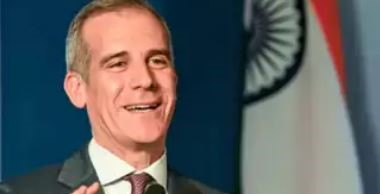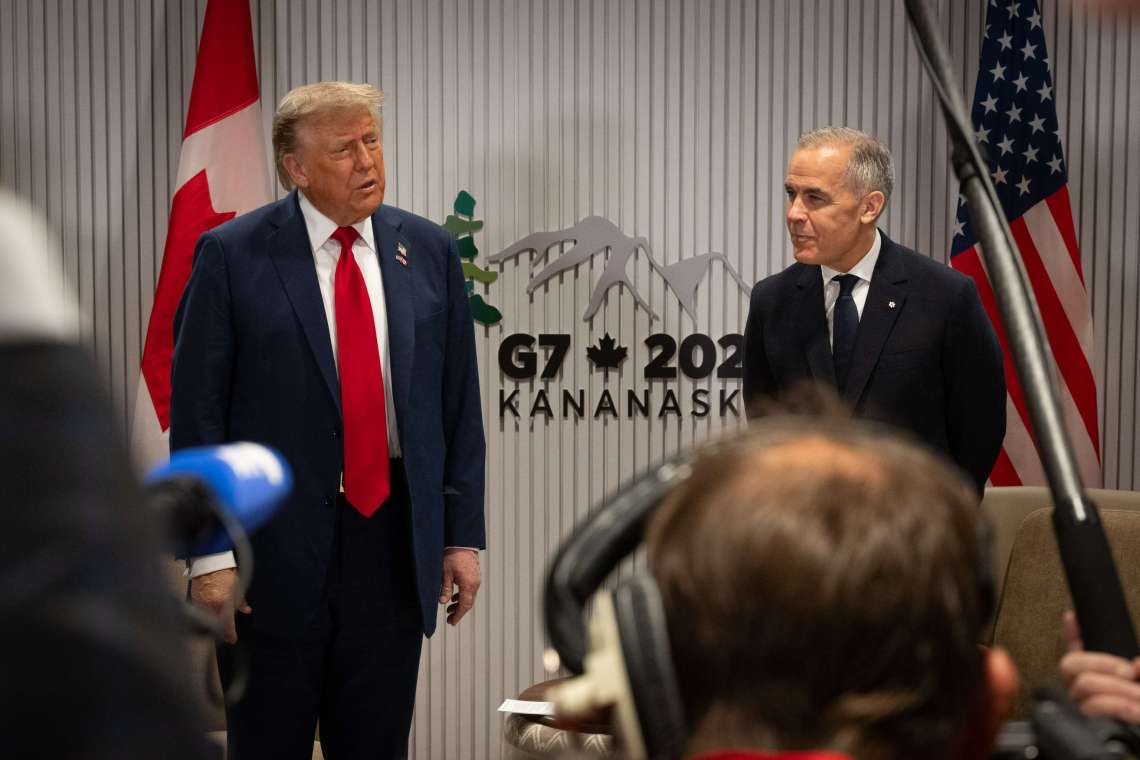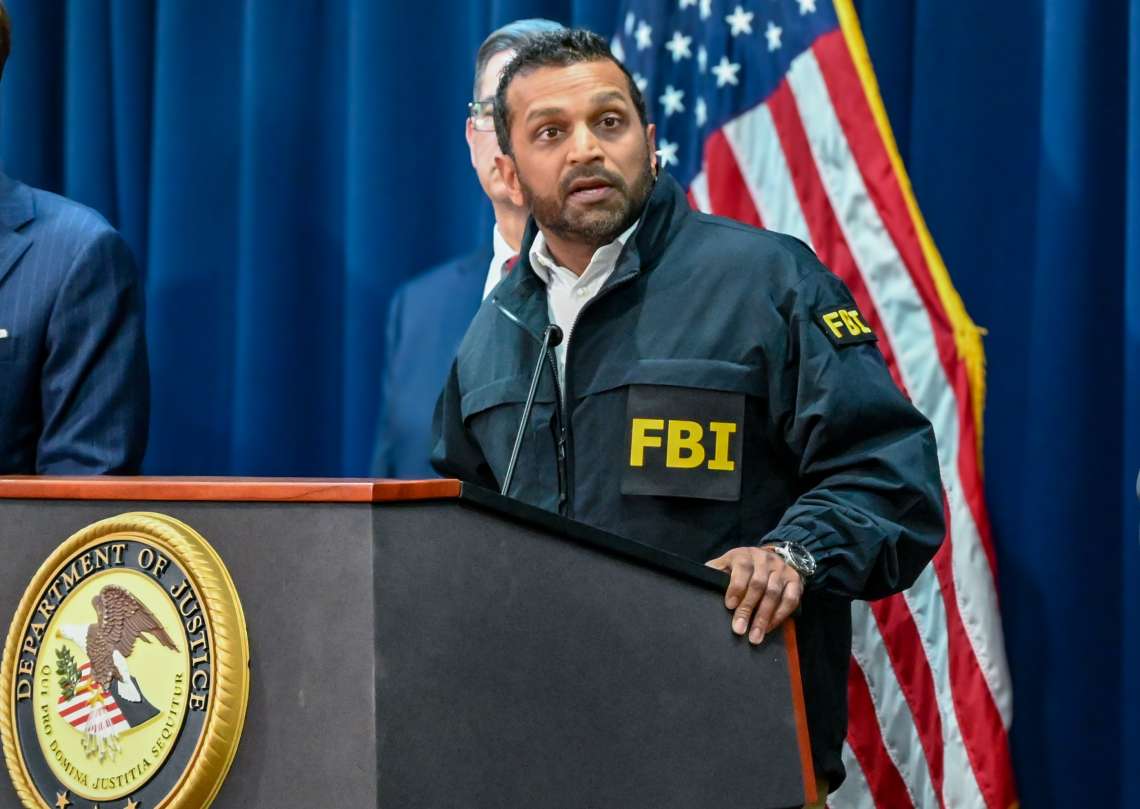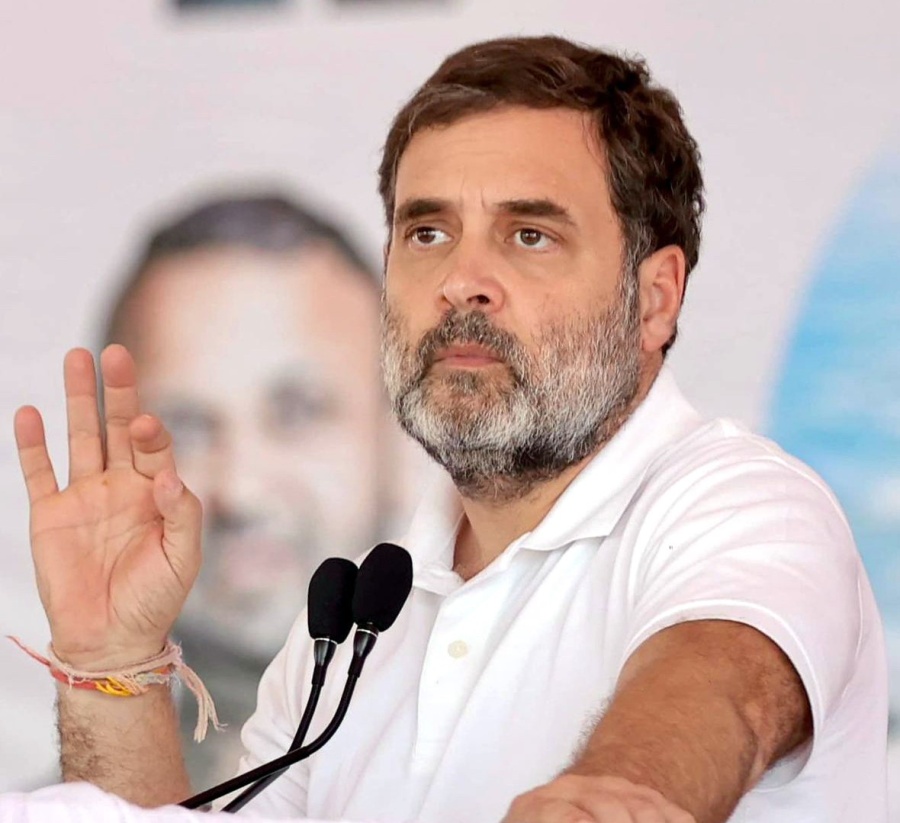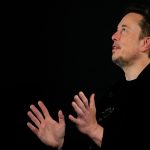Garcetti said PM Modi is the most pro-American Prime Minister they have seen in Indian history…reports Asian Lite News
US Ambassador to India Eric Garcetti, on Monday, talked about the “close friendship” between Prime Minister Narendra Modi and US President Joe Biden and its role in the rapidly expanding ties between the two countries.
In an interview with ANI, Garcetti said PM Modi is the most pro-American Prime Minister they have seen in Indian history and President Biden is the most “pro-Indian president we’ve had in US history”.
“These are two men (PM Modi and Joe Biden) who have such a close friendship, the most pro-American prime minister we’ve ever seen in Indian history, the most pro-Indian president we’ve had in US history and that’s building on people who have been very strong before. I think they are representative of the people in their country, the closeness that we have,” he said.
He said Quad, which is a forum of the US, India, Japan and Australia, is a “powerful place” to set a vision, share principles and to come up with common solutions in the Indo-Pacific region.
“The Quad is a powerful place to set a vision, to share principles and to come up with common solutions in the Indo-Pacific. It’s a contrast to nations that don’t want to play by the rules, don’t believe in the rule of law, but I think we will build solutions. It’s about what we can do proactively and this was a giant step forward,” he said.
He noted that the four Quad countries have a common vision that there should be a free and prosperous Indo-Pacific and the forum is about finding solutions to common challenges and standing up for principles that not every country shares.
US President Joe Biden hosted the sixth Quad Summit at his home town in Wilmington, Delaware, and it was attended by Prime Minister Narendra Modi, Japan Prime Minister Fumio Kishida, and Australian Prime Minister Anthony Albanese.
Garcetti said Quad is about common vision of four countries and the joint declaration issued at the end of Summit speaks of cooperation in a range of areas including disaster assistance and supply chains.
“It’s not about any one nation. It’s really about these four nations and this common vision that there should be a free open, prosperous Indo-Pacific and if you look at the declaration, it underscores that from cooperating together on health care, whether it’s security and making sure our coast guards can act with each other in a way during a humanitarian disaster that can keep our people safe and protected or whether it’s looking at economic development of things like supply chains to make sure no one country can throttle those supply chains in critical minerals,” he said.
He said nobody should feel threatened by Quad.
“We put a billion dollars together between just US and India to find climate solutions when we have almost 900 million people who are climate-vulnerable in our two countries. So of course, other countries will look in but nobody should feel threatened by the Quad. But the Quad is about standing up for principles that not every country shares. It is about finding solutions to common challenges that not everybody is doing in a multilateral way and I think it is inspiring the world. The Quad doesn’t just work in four countries, we are looking at the entire region and how we can give something to everyone,” he added.
Garcetti said Quad is not a military alliance looking to project power and is looking to preserve peace.”There’s no question that security and peace is the most important thing for any country and for all of our people. So whether it’s the new announcement on Coast Guard integration and having our crews work together or whether it’s the hub to allow some of our military planes and things like that to be able to interoperate, be fixed in each other’s countries that show interoperability to protect our people, but it is not first and foremost, some sort of military alliance looking to project power, it is looking to preserve peace and to make sure that we have prosperity for the entire plan,” he said.
“In the Indo-Pacific, it’s a contrast to nations that don’t want to play by the rules, don’t believe in the rule of law, but I think it will build solutions. It’s about what we can do proactively and this was a giant step forward, ” he added. (ANI)
ALSO READ: G7 highlights AI’s impact on cultural sector


